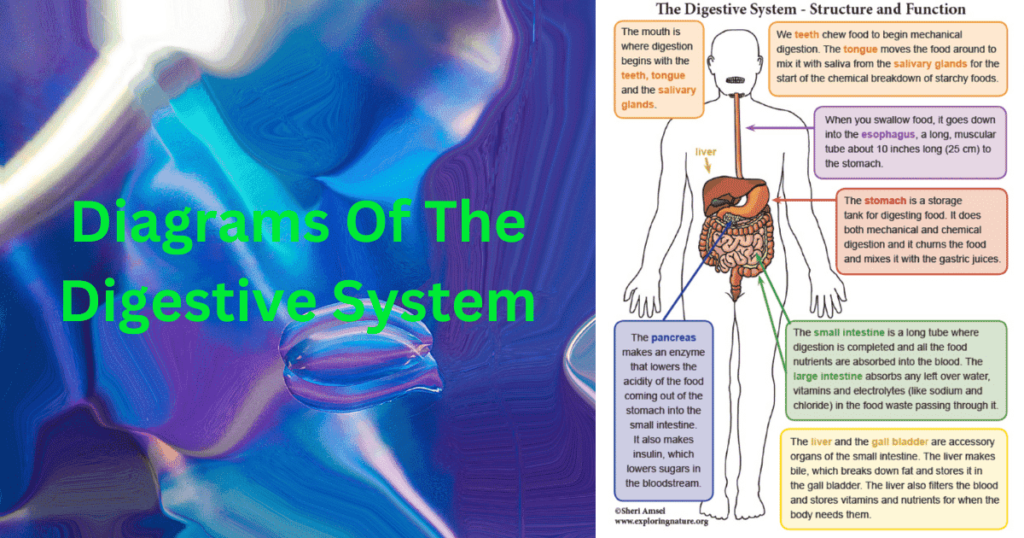How to Reset Digestive System Ibs: To reset your digestive system if you have IBS, consider a temporary low-FODMAP diet and probiotics. Consult with a healthcare professional before making significant dietary changes.
Resetting the digestive system, especially for those with Irritable Bowel Syndrome (IBS), can be a delicate process that demands a strategic approach. A well-managed diet plays a pivotal role in recalibrating your gut health. Integrating probiotics into your regimen may aid in balancing intestinal flora, which is critical for people grappling with IBS.
Equally important is staying hydrated and incorporating regular physical activity, both of which support digestion and can alleviate symptoms. It’s essential to understand that while certain diets, like low-FODMAP, show promise in managing IBS, they should not be adopted long-term without professional guidance. Tailoring these strategies to individual needs is key in effectively resetting the digestive system and promoting ongoing gut health.
Signs Your Digestive System Needs A Reset
Feeling bloated all the time? Stomach in knots? These discomforts might hint that your digestive system is eager for a reset. Let’s explore the signals your body gives when it’s time to pay attention to your gut health, especially concerning Irritable Bowel Syndrome (IBS).
Common Symptoms Of Ibs
- Abdominal pain or cramps – often worsens after eating
- Bloating and gas – feel like you’re carrying a balloon in your belly
- Diarrhea or constipation – sometimes both, in an alternating pattern
- Mucus in the stool – sounds gross, but it’s a telltale sign
- Food intolerance – some foods just don’t sit right anymore
IBS symptoms can come and go. They disrupt daily life. If these sound familiar, consider a gut reset.
Identifying Triggers For Digestive Discomfort
Not all tummies are ticklish for the same reasons. Identifying what rouses your gut’s grumble is vital to smoothing things over
| Dietary Triggers | Non-Dietary Triggers |
|---|---|
|
|
Track your meals. Take note of stress levels. Patterns might emerge. These clues are vital to untangling the tight knots in your stomach. Remember, a healthy diet and balanced lifestyle foster a happy digestive system.

Credit: www.amazon.com
Importance Of Gut Health
Your digestive system is like a bustling city’s subway, linking everything together. When it’s in top form, your whole body feels it! But for those with IBS (Irritable Bowel Syndrome), this system might need a reset button. Before taking that step, it’s crucial to understand why your gut health matters so much. Let’s explore further.
Role Of The Gut Microbiome
The gut microbiome is your belly’s superhero team. It fights bad guys, like infections, and helps your body absorb important nutrients. When your microbiome gets out of balance, IBS symptoms can knock on your door. Working towards a balanced and diverse microbiome is key to resetting your digestive system.
- Defends against harmful bacteria
- Helps digest food
- Boosts your immune system
Impact Of Digestion On Overall Well-being
Think of your gut as a roots system. Like roots to a plant, your gut gives your body what it needs to thrive. It turns food into fuel, makes sure your body’s defenses are ready, and even helps keep your mood bright. When digestion falters, your well-being takes a hit. This link shows why focusing on a happy gut leads to a happier you.
| Gut Health | Benefits for Well-being |
|---|---|
| Efficient digestion | More energy |
| Strong gut barrier | Fewer infections |
| Healthy microbiome | Better mood |
Starting With A Clean Slate
Struggling with IBS can feel like a never-ending battle. A reset of your digestive system may be just what you need. Starting with a clean slate helps in rebuilding gut health and managing IBS symptoms more effectively. Let’s explore how to reboot your digestive system and nurture it back to balance.
Elimination Diets Explained
Elimination diets are a tool to discover which foods trigger your IBS. They involve removing certain foods from your diet and later reintroducing them. This method helps you identify foods causing discomfort or flare-ups. Let’s break down the steps:
- Remove common triggers like gluten or dairy for a few weeks.
- Monitor your symptoms and see if they improve.
- Reintroduce foods one at a time and note any changes.
- Identify and eliminate those that worsen symptoms.
Importance Of Hydration
Hydration plays a key role in a digestive reset. Water keeps everything moving smoothly in your gut. Maintaining ample hydration can reduce IBS symptoms like bloating and constipation. Consider these tips:
- Drink enough water throughout the day, not just when thirsty.
- Aim for clear urine as a hydration indicator.
- Limit caffeine and alcohol as they can dehydrate.
Probiotics And Prebiotics
Many people with IBS are turning to probiotics and prebiotics to reset their digestive system. Probiotics are good bacteria that aid digestion. Prebiotics are food for these bacteria. Together, they can help balance the gut microbiome.
Choosing The Right Probiotics
Probiotics are key to a healthy gut, especially for those with IBS. Yet, not all probiotics are the same. It is crucial to choose the right ones. Look for probiotics with diverse strains. These strains must be clinically proven to aid gut health. Some common probiotic strains beneficial for IBS include Lactobacillus and Bifidobacterium.
Consider these tips when selecting a probiotic supplement:
- Quality Brand: Choose a reputable brand that provides strain transparency.
- High CFU Count: CFU stands for ‘colony forming units’. More CFUs can mean more effective bacteria.
- Storage Needs: Some probiotics need refrigeration to keep the bacteria alive, while others are stable at room temperature.
Incorporating Prebiotics Into Your Diet
Prebiotics nourish the good bacteria in your gut. They are found in certain foods. Including these foods in your diet is a natural way to support your digestive health. Start adding prebiotics by eating:
| Prebiotic Foods | Benefits |
|---|---|
| Garlic | Promotes beneficial bacteria growth. |
| Bananas | Boosts gastrointestinal health. |
| Onions | Enhances immune function. |
| Whole Grains | Improves bowel movements. |
By eating more prebiotic-rich foods, you provide your probiotics with the food they need to thrive. This can lead to a better balanced digestive system, potentially easing IBS symptoms.
Mindful Eating Techniques
Struggling with digestive issues like IBS can be challenging. ‘Mindful Eating Techniques’ come to your rescue here.
Mindful eating involves being fully present during meals. This practice can play a crucial role in resetting your digestive system.
Chewing: The First Step Of Digestion
Good digestion begins in your mouth. When you chew your food thoroughly, you’re grinding it down to make it easier for your stomach to digest.
- Chew each bite until it’s liquid.
- This releases enzymes in your saliva that kickstart the digestion process.
- It can help prevent symptoms like bloating and discomfort associated with IBS.
The Role Of Mindfulness In Gut Health
Eating mindfully means paying attention to the signals your body sends you.
It’s about recognizing when you’re full and being in tune with what your body needs. This can greatly improve your IBS symptoms.
| Technique | Benefit |
|---|---|
| Slow Eating | Better digestion, less stress on gut |
| Pause Between Bites | Allows time to assess fullness |
| Eliminate Distractions | Focus on the act of eating, enjoy food more |
Credit: fvrl.bibliocommons.com
Lifestyle Adjustments For Better Digestion
Maintaining a healthy digestive system is essential, particularly for those dealing with IBS. Simple changes in daily habits can make a huge difference. Active living and stress control are keys. They help reset the digestive system. Here’s how:
Exercise’s Effect on the Gut
Exercise’s Effect On The Gut
Moving your body has big benefits for your gut. Regular exercise helps keep things moving. It reduces constipation. It also eases symptoms of IBS. Strive for about 30 minutes of activity each day. Mix it up:
- Brisk walking gets your heart pumping and your intestines moving.
- Yoga encourages gut flow and reduces stress.
- Swimming is gentle on the body and can help ease digestive discomfort.
Remember, before you start a new routine, talk with a doctor. You want to find what’s best for your body.
Stress Management for Digestive Harmony
Stress Management For Digestive Harmony
Stress can trigger IBS symptoms. It’s important to find ways to relax:
- Meditation can calm the mind and soothe the gut.
- Deep breathing exercises help activate the body’s relaxation response.
- A warm bath before bed can ease digestive distress.
Making time for hobbies and good sleep also lowers stress levels. Your gut will thank you.
When To Seek Professional Help
It’s crucial to know when the time is right to consult a doctor for your IBS. Dealing with IBS symptoms can be tough, and sometimes a reset of your digestive system under professional supervision is beneficial. If home remedies and dietary changes are not helping, it might be time to get expert advice.
Recognizing Persistent Ibs Symptoms
Identifying ongoing symptoms of IBS is essential in deciding to seek help. Look for:
- Constant abdominal pain
- Changes in bowel movements
- Frequent bloating or gas
- Food intolerances
These signs suggest that your IBS might need a reset guided by a healthcare provider.
The Role Of Healthcare Providers In Digestive Resets
Doctors play a key role in managing IBS and resetting your digestive system. They can offer:
- Medical assessments
- Dietary guidance tailored to your needs
- Medication suggestions if necessary
- Support for stress-related symptoms
Taking the right steps with professional support can lead to improved gut health. Find relief by getting the help you need for your IBS.

Credit: www.walmart.com
Frequently Asked Questions For How To Reset Digestive System Ibs
How Do You Reset Your Gut For Ibs?
To reset your gut for IBS, eliminate trigger foods, incorporate a low-FODMAP diet, add soluble fiber, manage stress, and maintain regular exercise. Always consult a healthcare professional before making dietary changes.
How Do I Get My Ibs Back To Normal?
To restore normalcy with IBS, adopt a diet low in FODMAPs, stay hydrated, engage in regular exercise, manage stress effectively, and consult your healthcare provider for personalized advice.
How Do You Flush Out Ibs?
To flush out Irritable Bowel Syndrome (IBS), adopt a high-fiber diet, stay hydrated, practice regular exercise, and manage stress effectively. Consult your doctor for personalized treatment options.
How Do I Reset My Stomach And Bowels?
To reset your stomach and bowels, follow a high-fiber diet, drink plenty of water, engage in regular exercise, reduce stress, and ensure adequate sleep.
Conclusion
Restoring your digestive balance is within reach. Embrace the power of a reset to soothe your IBS symptoms. With commitment and the right strategies, relief is not just possible—it’s expected. Take charge of your gut health and start your journey to a happier digestive system today.


Pingback: Planet Fitness Total Body Enhancement: Insider Tips - Everyday Health Lines